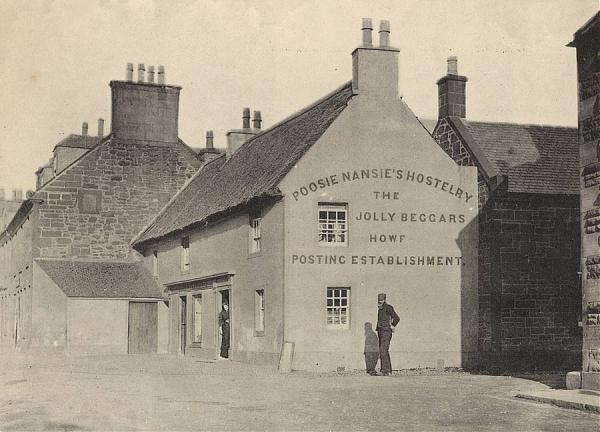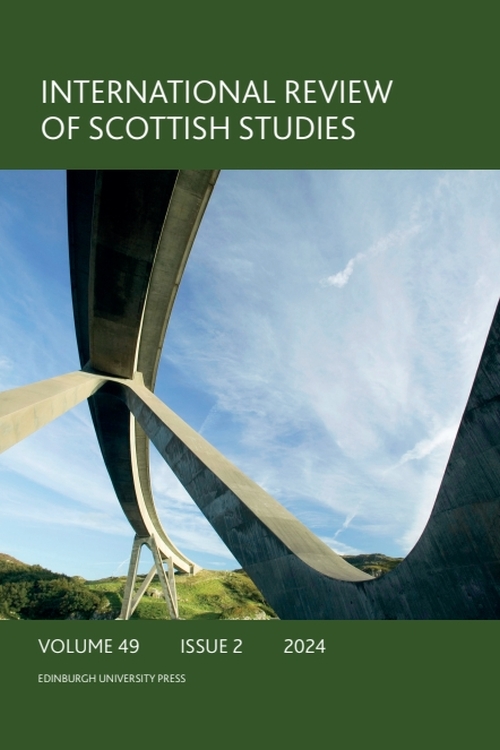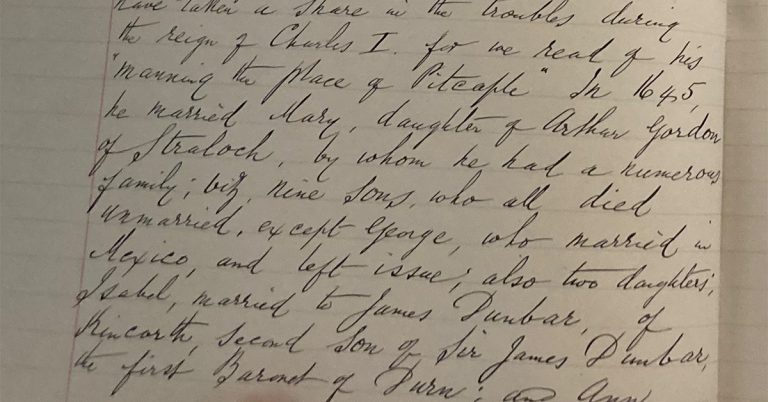
By Kevin J. James
The inn is a curious place. It is often distinguished more by convention than by law from other institutions—the pub, the tavern, and the hotel. It is imaginatively constituted in distinctive ways—and often deeply associated within rural landscapes. Scottish inns are no different. They inspired fewer effusions than the English inn, which in the first decades of the twentieth century was extolled as an institution that manifested the national character as resolutely as the village green, wrapped in mists of nostalgia that often occluded its contemporary dynamism and vitality. Even as the inn was more accessible with the advent of the motorcar, it was eulogised as the grand hotel cast a long shadow over it.
Scottish inns were sentimentalised, too, but often in different ways. Many were linked to specific figures—famous matronly landladies such as Tibbie Shiel and distinguished guests such as Rabbie Burns, James Hogg, and Walter Scott. In 1893 Robert Kempt’s Convivial Caledonia: Inns and Taverns of Scotland and Some Famous People who have Frequented Them enumerated many such places and characters. They were also seen as places of deep immersion into distinctive regional regimes of hospitality, including foodways.

The Scottish inn attracted considerable commentary from travellers. Sometimes it was uncomplimentary. Many writers who reflected on the Highland inn regarded it, often ambivalently, as the manifestation of ‘primitive culture’, of simplicity and rusticity, of frugality necessitated by an absence of steady income, and of a social and economic geography that promoted the monopolistic grip of landlords over hostelries.
The inn offered travellers more than a bed for the night. It offered them a tableau onto which they could render their understandings of Scotland’s culture, society, and economy. In reflecting on their place within the geography of British and Irish inns and their continental counterparts—the French auberge, the German Gasthaus, the Spanish fonda, the Italian albergo, and many more—it is instructive to consider how these appraisals were freighted with cultural evaluations. They made the inns’ physical forms, interior arrangements and décors, and the people who worked in them and who frequented them, part of a much wider frame of interpretation.
Explore the brand new special issue of the International Review of Scottish Studies: ‘Nodes and Networks of Social and Cultural Diffusion: Histories of the Highland Inn and the Transatlantic Scottish Tavern’

About the Journal
The International Review of Scottish Studies (IRSS) is the leading interdisciplinary journal for international scholarship on Scottish history and culture, with a mission to create a space for scholars of all career levels exploring Scotland’s past and present.
Sign up for TOC alerts, subscribe to IRSS, recommend to your library, and learn how to submit an article.

About the Author
Kevin J. James is the editor of the International Review of Scottish Studies, and Professor of History and holder of the Scottish Studies Foundation Chair at the University of Guelph, where he is also Director of the Centre for Scottish Studies.
Explore related articles on the EUP Blog
The Burns Supper: A New Field of Study
A Nation Built on Books: The Role of Libraries in Modern Scotland
Scottish Diaspora Virtual Issue




